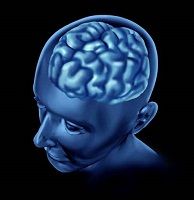Cognitive Deficits Among Two Culturally Different Diabetes Populations
American and Chinese type 2 diabetes populations are at similar risk for memory impairment and dementia, according to researchers from the Mayo Clinic in Rochester, MN.

American and Chinese type 2 diabetes populations are at similar risk for memory impairment and dementia, according to researchers from the Mayo Clinic in Rochester, MN.
The investigators used two large, ongoing population based studies focusing on aging to recruit 3,400 Chinese adults and 3,700 American adults over the age of 50 years. Both of the studies used on site and in person evaluations to test cognition capabilities of the patients. The researchers used medical records to determine if the patients had type 2 diabetes after each patient underwent cognitive testing. All the patients were determined to be dementia free. The authors noted that diabetes is a known risk factor for cognitive decline and dementia, but they said no study had examined the link across different cultures.
The participants with type 2 diabetes performed significantly worse on cognitive tests compared to their non-diabetic counterparts, regardless of race, the researchers said. From this, the study authors extrapolated that diabetes is a risk for cognitive impairment among both Eastern and Western cultures.
“We wanted to study diabetes and cognitive impairment in these two completely different ethnic groups to see whether there are any differences,” study co author and Mayo Clinic epidemiologist Rosebud Roberts, MB, ChB, explained in a press release. “We found that in both cohorts, having a history of diabetes was associated with greater impairment in cognitive function.”
Even after the researchers adjusted for age, gender, education, and vascular problems, diabetes remained a risk for cognitive decline in both cultures. American and Chinese patients with diabetes specifically performed worse on tasks measuring executive function — the ability to make decisions, plan, and problem solve, typically associated with the brain’s frontal lobe – compared to their non diabetic counterparts on the same tests.
The Chinese patient cohort with diabetes, who were recruited from the Shanghai Aging Study at the Huashan Hospital in Shanghai, demonstrated poorer performances on tests for memory, visual/ spatial skills, and language, compared to their non-diabetic counterparts. The researchers theorize that the Shanghai patients developed diabetes at an earlier age when compared to the American cohort.
Roberts added that the research is especially important because it demonstrated that impairment in executive function may be an early warning sign for diabetes as the earlier the diabetes onset, the greater the cognitive deficits. But, the effects of diabetes were overall similar among the Chinese and American patients, she concluded.